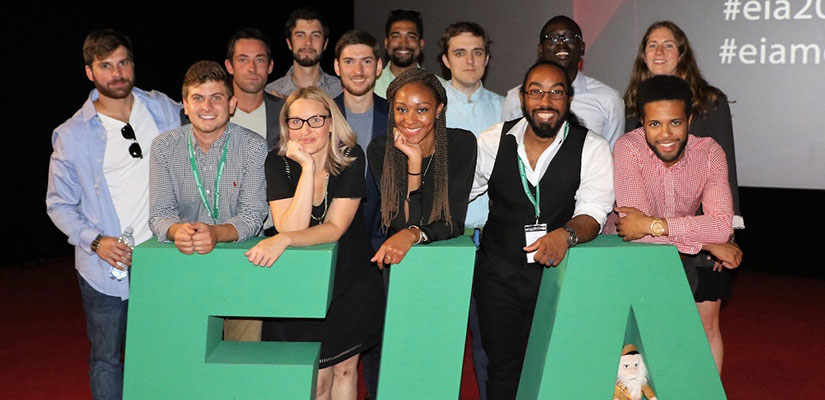By Brian McNeill
VCU University Relations
Students in the VCU da Vinci Center’s Master of Product Innovation program traveled to Italy over the summer to participate in the European Innovation Academy, a program that draws 600 entrepreneurial students from 70 different countries to work in teams that develop promising startup concepts, develop a business and build a prototype — all in three weeks.
Two of the teams that included VCU students were ranked among the top 10 of all participants.
“The da Vinci Center students who attended built new technology companies, in a foreign country, with teammates of different academic and cultural backgrounds, and achieved unparalleled success in three weeks,” said Garret Westlake, Ph.D., executive director of the da Vinci Center, a collaboration of VCU’s schools of the Arts, Business, Engineering, and College of Humanities and Sciences that advances innovation, entrepreneurship and cross-disciplinary collaboration.
“There is not a classroom where you can launch a company, engage with 100 mentors and 600 peers of 70 different nationalities and have it culminate in real-world pitches to venture capitalists,” Westlake said.
Testing seafood for toxic metal
Hilton Bennett, who majored in mechanical engineering at VCU’s School of Engineering, was part of a team — with members from Italy, Norway and the United States — that launched a startup focused on quickly testing seafood for dangerous toxic metals.
The method to test for toxic metals was validated through testing by students at Politec University in Turin, and then developed by the team at the European Innovation Academy.
“They came up with [the method] based on an initiative by the World Health Organization to decrease the pollutants in seafood,” Bennett said. “So while the idea conceptually existed, it hadn’t been developed physically, which is where our team came in.”
Bennett’s team also was ranked among the academy’s top 10 best startups.
“Our team had a great idea to work on, we were diverse, we were multidisciplinary, we completed milestones ahead of schedule, we proved early on the validity of our idea and we were able to turn a concept into a physical prototype in less than two weeks,” he said.
Bennett and several team members are planning to move forward with the startup. Attending the academy, he said, gave him experience with marketing strategies, team dynamics, leadership, and much more.
“The experience was immersive, and fast paced,” he said. “I particularly enjoyed the multidisciplinary team aspect, and the opportunity to meet and work with people from over 70 countries.”
Virtual reality advertising
Matthew Halpern, who majored in psychology in VCU’s College of Humanities and Sciences, was initially skeptical about the European Innovation Academy.
“I thought, how could three weeks be worth a summer class? But we got there, and it was one of the most stressful, productive and enlightening experiences of my life,” he said.
Halpern’s team included students from the University of Michigan; the University of California, Berkeley; Imperial College London; and Deakin University in Australia. It focused on a major problem in the emerging virtual reality industry: the difficulty of monetizing VR content.
The team developed a prototype VR ad, which might fit in between levels of a virtual reality game, and that allows the user to customize a 3-D model of a car, swapping out the color, style and features.
The idea, he said, is that users would be more interested in seeing an advertisement that makes sense with a virtual reality context, and advertisers will be able to get valuable analytics about how the user interacts with the ad.
“We ended up in the top 10 teams at EIA, which means that I pitched this idea to 700 people,” he said. “We got to speak to people who are specifically in the gaming industry, investing in game companies.”
An international entrepreneurship experience
A goal of the da Vinci Center is to be the preeminent home to innovation education. Taking part in high-level entrepreneurial experiences like the European Innovation Academy, Westlake said, is a major step in that direction.
“An important part of achieving this goal is recognizing that innovation is increasingly global and the ability for our students to engage in an international experience with peers and experts from over 70 different countries is invaluable,” he said. “All students accepted to the MPI program are granted automatic admission to EIA. This speaks to the talent of our students and the strength of VCU and the da Vinci Center as a partner in innovation with leading organizations like EIA.”
